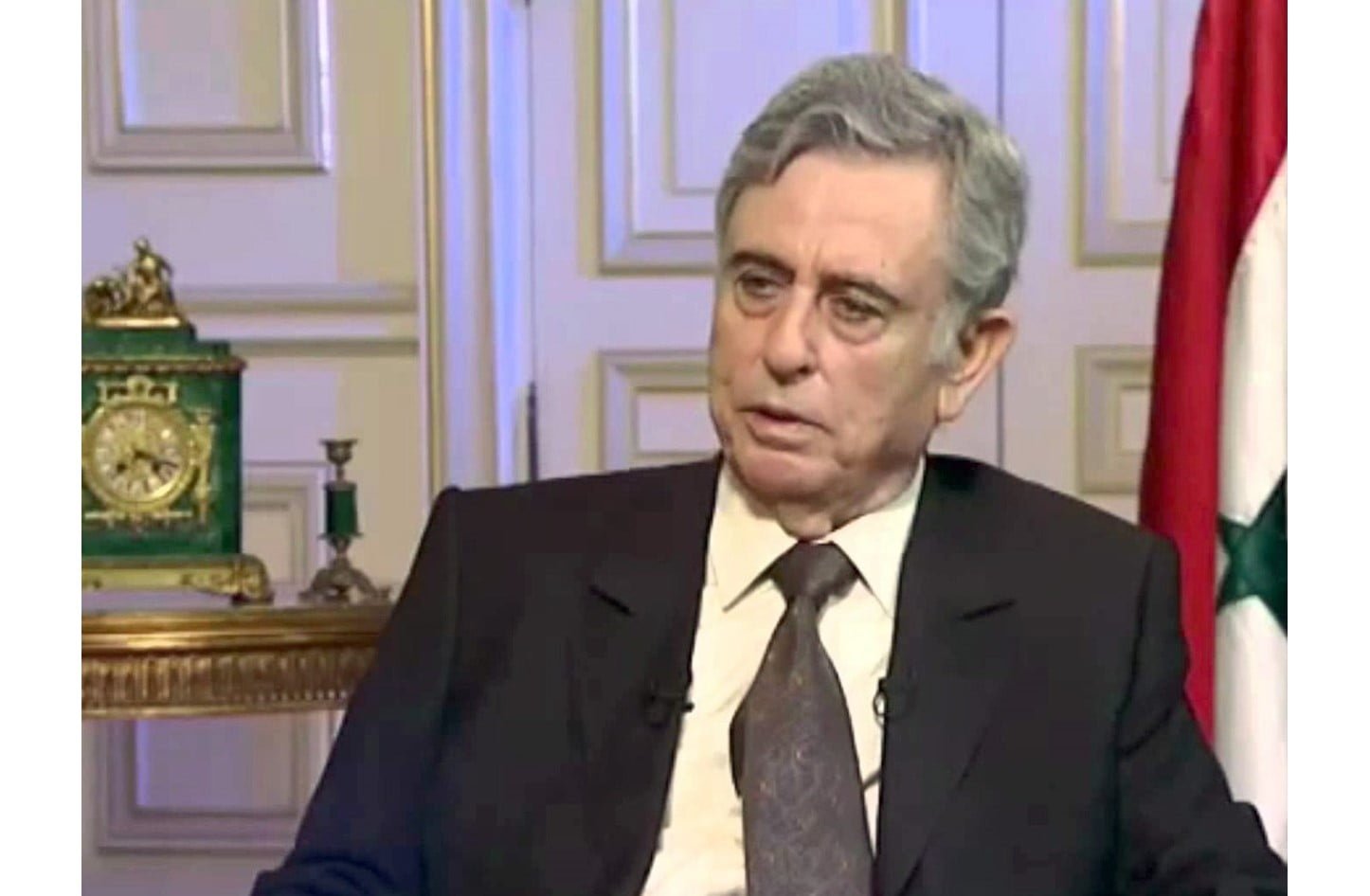Abdel Halim Khaddam, the former deputy president of Syria and member of the opposition National Salvation Front, has revealed the cooperation of leaders within the Baath Party in his efforts to change the regime.
Khaddam, in a letter sent yesterday to Baath militants on the anniversary of his assumption of power, stated that the party has “a history of national action and defending the rights of the masses of the people.” He further emphasized that the Baathists today, including some of their leaders, pose the greatest danger, particularly in terms of political tyranny, corruption, the economic situation, and poverty. While acknowledging that there are some individuals within the party who have aligned themselves with the regime, Khaddam made it clear that the party’s principles and certain leaders are supportive of change and will work within their circumstances to achieve it.
While it is true that some individuals within the party have become tools of the regime, it should be noted that the party’s principles and certain leaders are aligned with the cause of change and will adapt their actions to the prevailing circumstances in order to achieve it.
- Abdel Halim Khaddam
Regarding his contacts with internal Baathists, he stated, “I prefer not to delve into this matter as I don’t want to provide the security services with an opportunity to influence prominent factions within the party across different governorates. At party conferences, it has become evident that a majority of members are expressing divergent viewpoints compared to what the leadership has put forward.”
He further added, “The people are witnessing the country’s resources being utilized solely for the benefit of the ruling family. They observe the widespread poverty and unemployment plaguing the nation. There are hundreds of thousands of qualified Baathists who are unable to find employment, and they are part of the millions of Syrians facing joblessness. They all believe that the current family-based system is corrupt, with its tyranny pushing the country towards a perilous state. When the appropriate time comes and the necessary conditions align, they will join a broad popular movement.”
When asked about the preparations for this movement, he clarified that it involves “forging alliances among popular forces within the country, intensifying pressure on the regime, and exposing its misconduct and practices.”
However, Khaddam declined to disclose the specifics of his role in this regard, stating that it is not solely determined by him, but rather by the collective efforts of the National Salvation Front, in which he collaborates, along with a group of Baathist leaders operating within the country.
Khaddam discussed the allegations made by the United States and Israel regarding attempts to sway Syria away from Iran, stating, “The regime is currently in a state of confusion. It desires negotiations with Israel, but it fears that such negotiations might lead to peace, which it cannot afford. Consequently, it seeks negotiations as a means to gain access to the American sphere, just as many countries did after the collapse of the Soviet Union, turning to Israel to establish a connection with the United States.”
Simultaneously, according to Khaddam, the Syrian regime is apprehensive that negotiations will not yield the desired outcomes. It is concerned about severing its alliance with Iran, as it heavily relies on Iran and its allies in Lebanon for protection.
Khaddam characterized Hezbollah as an Iranian instrument, questioning the reason behind its shift from the southern region to the interior, which has caused a severe crisis leading to a significant division within Lebanon. “The answer lies in disrupting the International Tribunal, which is of utmost importance to Bashar al-Assad.”
Khaddam stated that the establishment of the International Tribunal is a natural response to Hariri’s assassination and subsequent events and assassinations.
“The Lebanese judiciary cannot function independently due to the fear of the regime’s influence from Syria.” He illustrated this with reference to “three assassination attempts targeting the judge responsible for investigating the Madina Bank case.”


